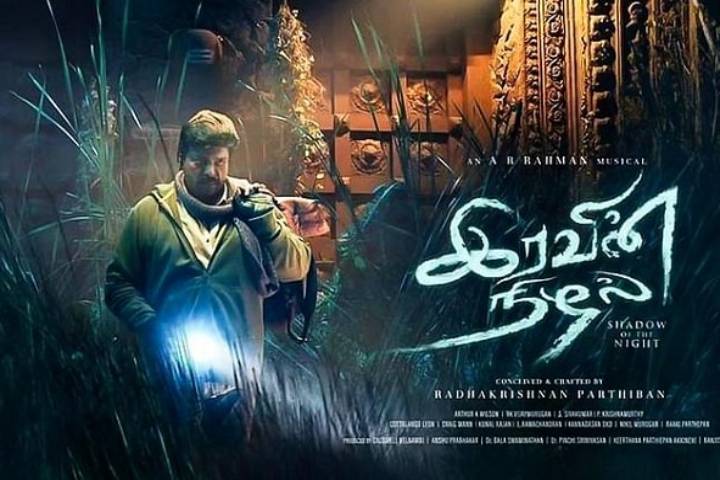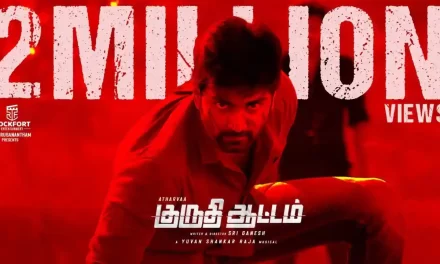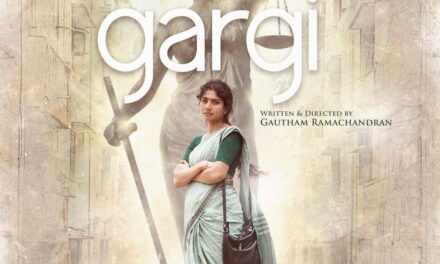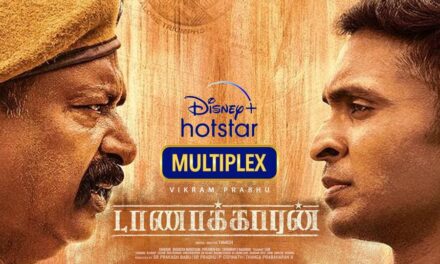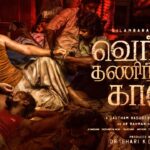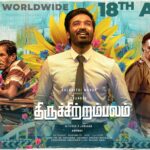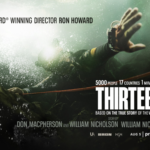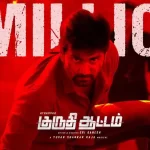Director: R.Parthiban
Cast: R.Parthiban, Varalaxmi Sarathkumar, Robo Shankar
Iravin Nizhal is R.Parthiban’s latest cinematic adventure. As many of you will be aware, this is the first film ever that has been shot entirely in a single take and that also has a non-linear screenplay. Just thinking about the logistics of such a venture makes my mind boggle. But known for his bold experiments, if there was one technician from the industry who you’d bet on to actually pull this off, it would be Parthiban.
Surprisingly, the film starts with a 30 minute documentary about its own making. We then break for an early intermission before the actual movie begins. It’s as if the team wanted to drill the scale of their effort into us and give us a crucial perspective before we began watching the end product. I have to say the effort wasn’t lost on me. Iravin Nizhal’s screenplay is expansive, both spatially and chronologically. The story travels through different time periods starting from the seventies and eighties to the present. It also traverses different locations across Tamil Nadu and Andhra. To achieve authenticity within this setting needed great production design for starters. This is supplied ably by the brilliant Vijay Murugan. The other technicians are in top form too, not least the cinematographer Arthur Wilson. Handling a camera without cuts in a maze of a set for 90 plus minutes is no joke and Wilson pulls it off with aplomb. AR Rahman’s score is celestial and a couple of songs from the album are running on loop on my playlist.
But what about the actual story itself? The film is autobiographical and is narrated by the protagonist Nandhu (Parthiban). Nandhu had an abusive childhood that forced him to embrace an amoral way of life. A cruel sequence of events piles more misery just as he is about to repent and begin a new, honest chapter. Things then go from bad to worse as he gets caught in the scandalous web of a Godman (played by Robo Shankar). The biggest turning point arrives when Nandhu commits a grave sin, that though makes him rich overnight, haunts him mentally for the rest of his life.
The best part about Iravin Nizhal is the lived-in feel we get while watching it. This is of course the key aim of a single shot film anyway, to bring the audience closer to the events of the story. Think of a film like 1917 that managed to achieve the same result (though 1917 had some hidden cuts and wasn’t strictly single shot). Iravin Nizhal is also aesthetically pleasing, a great feat given that cuts weren’t employed at all to achieve scene transitions and tempo shifts. But where the film fell a little short, I felt was in the story’s depth.
This brings me to the larger subject of how you pick a storyline for an attempt such as this. Autobiographical or even biographical stories are inherently sprawling in nature. The screenplay is generally episodic and each key event in the protagonist’s life is delved into in detail. This is why some of these films even go beyond 3 hours of run time. Iravin Nizhal tries to achieve the same effect but compresses Nandhu’s entire life story of more than forty years into a 90 odd minute screenplay. The result is that some key episodes move at lightning speed, leaving the audience to imagine certain details themselves, rather than absorb what the film actually tries to convey. A simple example is how Nandhu becomes rich overnight. Though the film has a logical and theoretical explanation for this, we don’t actually see the process of that transformation unfold. When it comes to personal relationships, we feel the love Nandhu has for his daughter, as these sequences are extremely well written and emoted. On the other hand, we don’t quite ‘feel’ the enmity between Nandhu and Robo Shankar’s Godman character though we are repeatedly told about it via the voiceover. More screen time capturing their journey together could have helped in this regard.
I’m not saying some of these drawbacks resulted in Iravin Nizhal becoming a bad film. But a different genre, maybe a crime thriller or a courtroom drama, could have worked even better in a single shot setting. I still liked Iravin Nizhal a lot. It was an intimate film watching experience like no other and a colossal effort from the cast and crew without a shadow of a doubt.
Overall rating: 3/5

